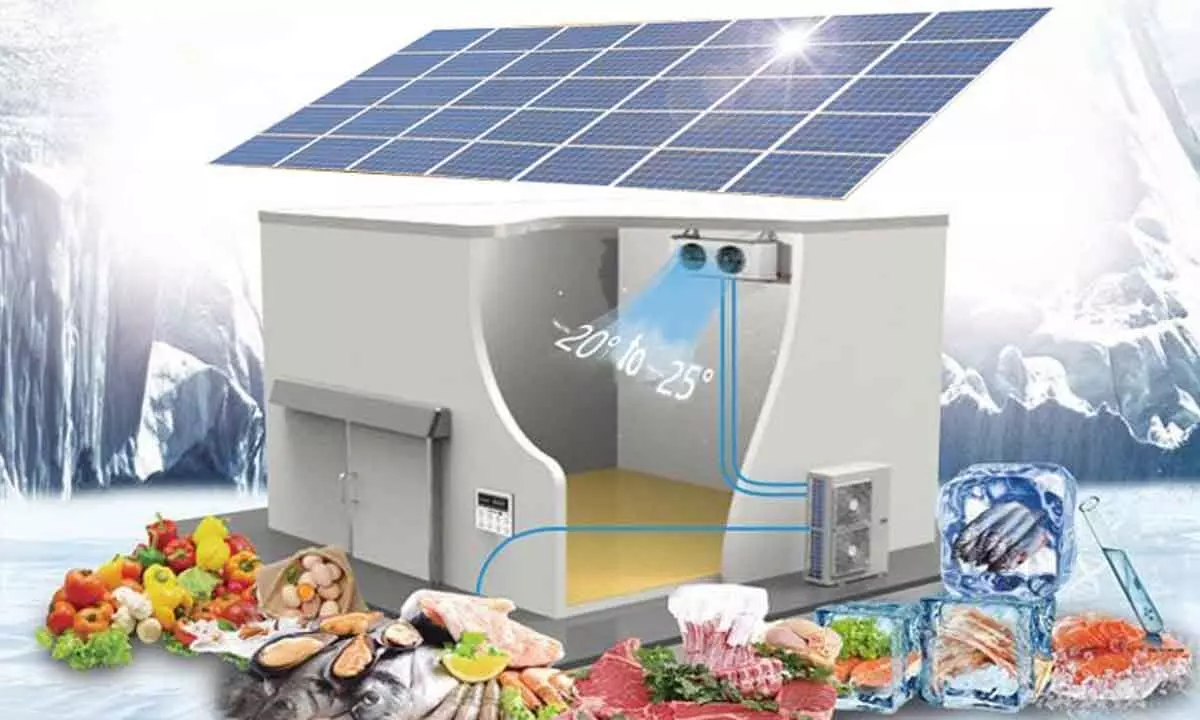Centre frames norms for solar cold storages
New specifications will come into effect after interaction with the stakeholders; Storage capacity of 2MT to 10MT will be powered entirely by solar PVs as distributed renewable energy source
image for illustrative purpose

New Delhi: The central government has finalised design specifications for solar cold storages (SCS). Framed by the Ministry of New and Renewable Energy (MNRE), these will come into effect after interaction with the stakeholders, official sources told Bizz Buzz.
The storage capacity of two metric tonne (MT) to 10MT will be powered entirely by solar PVs as distributed renewable energy source (DRE). The SCS parameters have been decided in such a manner that they can be installed anywhere in India. The guidelines and specifications are primarily documented keeping in mind to provide storage and preservative facility for storage of suitable produce within the temperature of 4 degree Celsius to 15 degree Celsius, the sources said.
The proposed specifications are applicable to perishable and non-perishable commodities like fruits and vegetables. All individual components of the SCS system should be certified as per the relevant standards. These include all critical storage conditions (CSC) and cooling requirements as specified in National Horticulture Board Standards (NHBS).
CSCs are environmental conditions such as the loading rate, temperature, humidity, and the air flow rate. These are critical for the long-term storage of the farm-produced commodities.
Further, the MNRE has stipulated that the operational life of the SCS system should be at least 10 years from the date of commissioning.
It may be recalled that the Ministry of Food Processing Industries (MoFPI) is implementing the Scheme for Integrated Cold Chain and Value Addition Infrastructure under the umbrella scheme, Pradhan Mantri Kisan Sampada Yojana. The objective of the scheme is to provide integrated cold chains and preservation and value addition infrastructure facilities without any break from the farm gate to the consumer. The objective is to reduce post-harvest losses of non-horticulture produce, dairy, meat, poultry, and marine fish (except shrimp).
So far, the MoFPI has approved 372 projects for creation of 38.82 lakh metric tonne (LMT) preservation capacity and 148.07 LMT processing capacity per annum.

